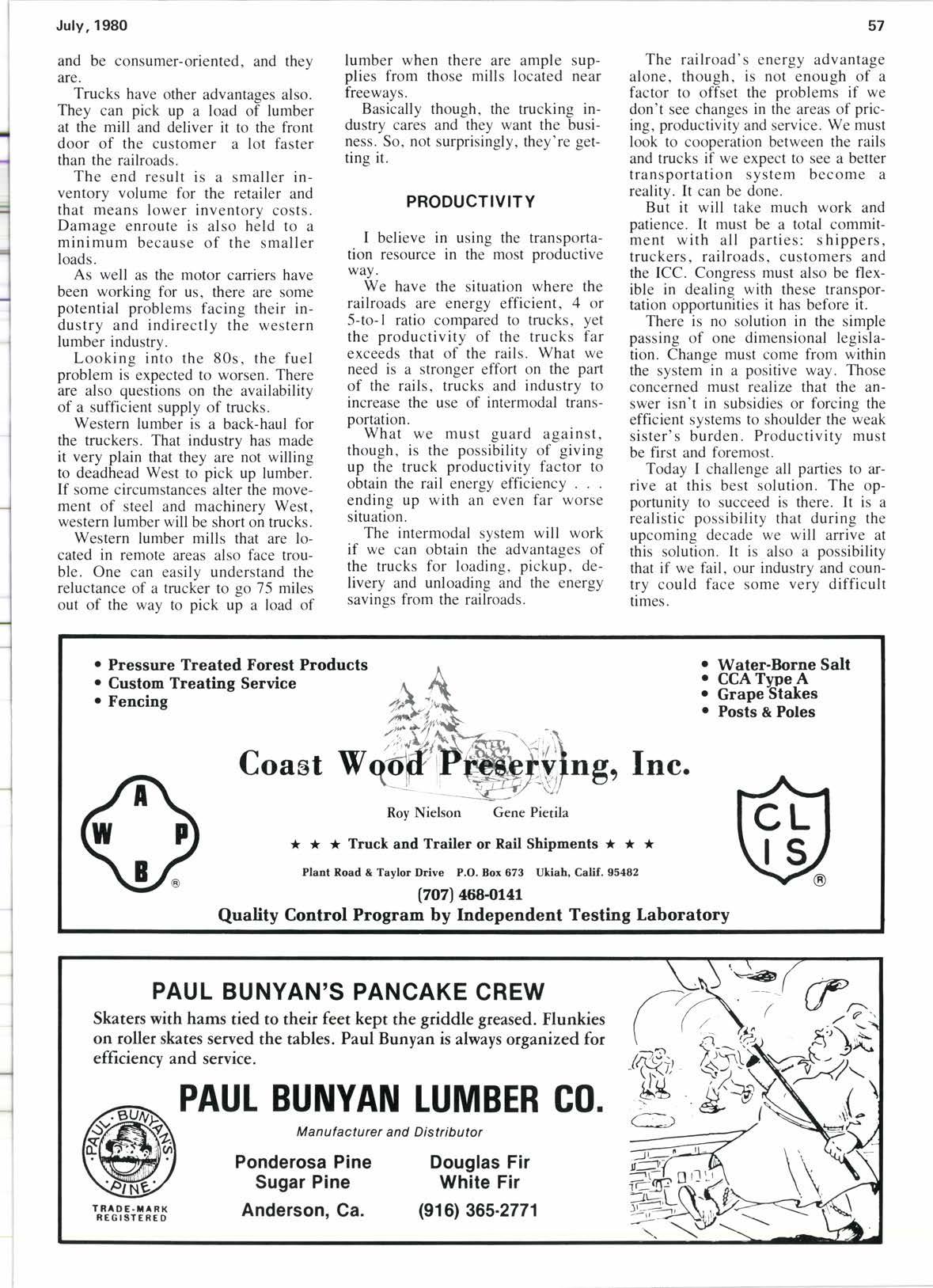
2 minute read
EDITORIAL
Decontrol of Trucking
A FTER YEARS of wrangling over the details fa and final passage by both Houses of Congress, it is expected as we go to press that President Jimmy Carter will sign into law a new measure decontrolling the United States trucking industry.
The new law will make it easier for companies to enter new markets and/or expand service areas. Like other expected provisions of the new law, it is sure to increase competitiveness; some anticipate that lower rates will materialize; others don't. Companies will have to prove to the Interstate Commerce Commission why grants of authority should not be made, rather than making applicants prove why they should be given authority.
Truckers could raise or lower their rates l07o yearly without ICC approval, and 5Vo more each year if the commission agreed. After two years rates could increase as much as the yearly rise of the federal government index for pro- ducer prices of goods. Of late, this index has been up more than l3%o from last year.
So it appears we are finally entering the new and long-awaited era of fairly wide decontrol of trucking. That it will produce some interesting changes in how business is conducted is certain, that it will also produce results that no one anticipated is likely. In many other cases of sweeping changes, what finally emerged in real life situations turned out to be far from what was expected. It could well occur here.
In this transition period, shippers and consignees would do well to take a fresh look at what impact these changes can be expected to bring. Increased market opportunities could well surface because of lower rates, faster, more efficient service; a chance to sell into or to a class or group of customers that wasn't previously possible. Study your situation and make certain you maximize your opportunities. Before your competitor does.

AT CURRENT gold prices. no ft business would disregard a bag of gold nuggets stored in its office files. However, many firms are overlooking something else in their files that, ounce for ounce, may prove even more valuable than gold.
Today, knowledgeable retailers, wholesalers, and manufacturers are discovering hidden savings in what would appear a most unlikely place: their files of paid and unpaid freight bills. Freight carriers overcharge U.S. businesses more than two bll /ror dollars annually. The average company pays between 2oh and Solt in excess freight costs. Why do these overcharges occur? The assessment of correct freight rates and charges is a complex art. An estimated thirty seven trillion rates are currently on file with the Interstate Commerce Commission. Largely as a result of the complex- ity of this rate structure, billing errors occur regularly.
Overcharges assume various forms. Some consist of simple errors in arithmetic. As an extreme example, an audit of a manufacturer's freight bills revealed that the firm had ovepaid the freight charge for one shipment by $13,000. The reason: a misplaced decimal point on the freight bill.
Overcharges more frequently occur as a result of freight misdescription. In one instance, a crosscountry shipment of pine veneer was described on the bill of lading as "veneer lumber". Omission of the word "pine" caused the carrier to assign not a class 55, but rather a class 70 rating to the shipment. An overcharge of $417.60 resulted.
Duplicate payment of freight charges for a single shipment is a frequent cause of overpayment. As a common example, a West Coast










